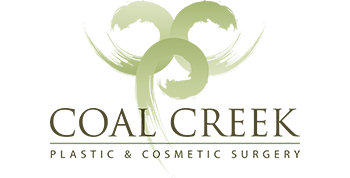Working with breast cancer patients during breast reconstruction is both challenging and incredibly rewarding. I am often inspired by their strength, resolve and selflessness.
Breast cancer patients, many of whom are mothers, wonder what the disease will mean for their daughters and family. My patients are often concerned that they passed on “the breast cancer gene” to their children. I’d like to help you understand how genetics affect breast cancer so you and your family can find answers and stay healthy.
What is the breast cancer gene?
The BRCA1 and BRCA2 genes, when functioning normally, produce proteins that suppress tumor production, so they actually protect you from getting certain types of cancer. It is mutations (changes) in these genes that increase your risk of getting certain types of cancer—most commonly breast and ovarian cancers. These dangerous mutations can be inherited, but only 5%-10% of women with breast cancer have these mutated BRCA genes.
Who should be tested for BRCA mutations?
Mutations like the BRCA1 and BRCA2 are very uncommon. It is estimated that only 1 in 400 or 1 in 800 women in the general public have one of these significant BRCA mutations. Studies have found there are risk factors that can increase the chances of having a BRCA mutation. However, even people with these risk factors only have a 15%-20% chance of having a BRCA mutation. These people can be tested to see if they have a mutation. Many insurance companies will cover the cost of these tests, which are considered to be preventative care.
Risk factors for BRCA gene testing
•A first- or second-degree relative who was diagnosed with breast cancer before the age of 50
•2 or more breast cancers in the same first- or second-degree relative
•Breast cancer and ovarian cancer in the same first- or second-degree relative or in family members on the same side of the family
•A first- or second-degree relative with a known mutation of BRCA
•Any male first- or second-degree relative diagnosed with breast cancer
•2 or more relatives on the same side of the family with breast cancer
•A family member diagnosed with triple-negative breast cancer before age 60
How do I get tested?
Genetic testing can be ordered by a physician or through a genetic counselor. It is often better to get the family member with breast or ovarian cancer tested first, since they are more likely to have the BRCA mutation. If they don’t have the BRCA mutation, they couldn’t have passed it on to anyone else.
Keep in mind that these tests are complicated and don’t always give simple answers. Everyone’s genes are a little different, so there could be variances that you won’t understand. Your test results could show a variation from normal that may still be “normal.” This is why it is important to speak with a physician or genetic counselor prior to and while reviewing genetic test results. He or she can help you pick the right test based on your family history and explain the results to you. A good place to start is with your primary care physician or family physician.
What if I do have a harmful mutation?
First, know that this does not mean you will get cancer. While your risk of developing cancer with one of these mutations is higher than that of the general population, it is not 100%.
There are ways to decrease risks for getting cancer, and close monitoring that can be done to catch cancers in early stages. The care options you choose are incredibly personal.
Prevention strategies come from a spectrum of options that include frequent exams, MRIs and medications. It may even be necessary to remove breast tissue and ovaries with surgery. It is important to review your options with your doctor so you can make an informed decision that is right for you.
Original Article Available Here



